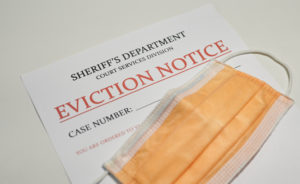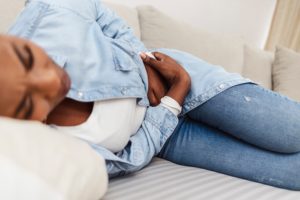Bayer AG’s Essure birth control implant should carry the strongest safety warning label, U.S. regulators said on Monday, following thousands of complaints about the device. Essure is a permanent (irreversible) form of birth control, meaning a woman who gets this device will no longer be able to become pregnant. According to Bayer, about 750,000 women have received Essure since 2002, about 70 percent of them in the United States. The implant has drawn thousands of complaints from women reporting chronic pain, bleeding and other health problems.
The Food and Drug Administration announced it would add a boxed warning – its most serious type – to alert doctors and patients to problems reported with the nickel-titanium implant. The FDA stopped short of removing the device from the market, a step favored by many women who have petitioned the agency in the last year. Instead, the agency is requiring manufacturer Bayer to conduct studies of the device to further assess its risks in different groups of women. Essure, acquired by Bayer in 2013, has been the target of complaints and calls for its withdrawal since it was approved for sale in the United States in 2002.
According to the FDA’s website, more than 5,000 adverse events involving Essure have been reported. Complaints have included reports of the device breaking, moving and causing side effects ranging from chronic pain and bleeding to autoimmune disorders such as psoriasis and lupus.
The FDA said it still considers the Essure “an appropriate option for the majority of women seeking a permanent form of birth control,” but the agency also noted that some women may be at risk for serious problems. The FDA will require a new warning label on Essure describing the serious problems that have been reported by some women using the device. The agency is also developing a “checklist” that doctors can use to discuss the device’s risks with patients.
The FDA is requiring the manufacturer Bayer to conduct a study of 2,000 patients looking at the complications and the risks of Essure, but Bayer stands by the product and says it will continue to work closely with the FDA.
FDA officials acknowledged the proposed study would take years to complete, but said Bayer would be expected to submit interim results by 2017. The proposed warning label will also take time. The FDA is seeking public input for 60 days on the language for the warning and another proposed “check-list” that doctors would use to make sure patients understand the device’s risks.
If you believe you may have a claim related to the Essure implant, please feel free to contact one of our experienced lawyers today for a free consultation at 1-866-327-2952.

As a partner with D'Arcy Johnson Day, Andrew D'Arcy has been involved in some of the nation’s most high-profile cases and investigations. His practice includes serious automobile accidents, medical malpractice, wrongful death and product defect cases. Andrew has been personally responsible for numerous multi-million dollar settlements and verdicts on behalf of his clients. He has been recognized by his peers as an "AV" rated attorney, the highest possible rating given by Martindale-Hubbell publication. Andrew has been named a "Super Lawyer" by New Jersey Monthly magazine each year consistently since 2013.











One Comment
Ryszard Rokicki
Comments concerning FDA recommendation
The FDA recommendations concerning Essure safety issued on February 29, 2016 sound like a distasteful joke. For the FDA to spend five months to make these two absurd recommendations (in the meantime allowing many more women to be sucked into the Essure trap) shows us how inefficiently and disingenuously this government agency works.
The FDA seems to be playing Russian roulette with women’s lives. The game got new restrictive warning (black box warning) saying that it is very dangerous to play. What FDA was supposed to do is remove the bullet from the gun.
Another sad fact is that the FDA does not take into account even their own sponsored research performed by their own scientists. (At least two articles published in 2015 sponsored and coauthored by FDA scientists show the vital importance of cleanliness and final finish of medical devices made of nitinol (the material that outer coil of Essure-device is made of).
This shows how taxpayers’ money is wasted.
It is mind-boggling that the statement issued by the FDA only marginally mentions allergy and hypersensitivity which are most probably the main culprits causing women’s suffering. That there has been no tissue study for nickel content in explanted tissue surrounding Essure device to date is simply unbelievable
Comments for this article are closed.